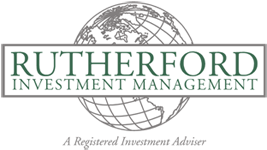
U.S. equity markets have staged a strong rally since hitting a low point on June 1. At that time investors feared a global recession, Europe was facing disaster and the general outlook was despondency.
The market closed at 1,278.04 on June 1. It has since risen 12.7 percent through the third quarter in a stealth rally. The market closed at 1,440.67 on Sept. 30. In September, usually the worst month for markets, the S&P rose 2.6 percent, the Nasdaq rose 1.6 percent and the Dow rose 2.75 percent.
At the conclusion of the quarter, the Dow had risen in 11 of the past 12 months, falling only in May. The last time this happened was in 1959. The Dow has had a remarkable one-year run in which it has gained about 2,500 points, or 23 percent.
It was not all smooth sailing, because most of the September gains came in the first two weeks. Durable goods orders in July-August fell 13.2 percent. At the end of September, consumer sentiment fell. The nonmanufacturing index rose to 55.1, but less than the 55.3 expected. Second-quarter GDP was revised lower to 1.3 percent growth.
However, jobless claims fell slightly and the economy in September added 162,000 jobs – well short of the 250,000 needed to absorb new workers let alone those out of work for extended periods. By the end of September, government statistics showed that the unemployment rate was below 8 percent, for the first time during the Obama administration.
The market got a lift from the announcement by the Fed of another round of quantitative easing. Both the anticipation of QE3 and the implementation lifted the market. Investors were reminded of the old saw “Don’t fight the Fed,” as the markets went up.
All the positive news gave a boost to the Obama campaign. Historical studies show that in most elections, when the market rises in the two months preceding the election, the incumbent wins. Obama still holds a narrow lead in the critical swing states.
The debates, however, may well prove decisive. In the first debate, President Obama appeared lackluster. Mitt Romney and his supporters took heart from the debate and the audience response.
National polls still show Obama with a lead, but within the margin of error. The president’s strength comes from a strong lead among women, Hispanics, blacks and young adults. Voter turnout will be a critical factor in the race.
Global markets experienced widespread positive returns for the quarter and year-to-date, with the global market equity index up 12.21 percent in 2012. The turmoil in Europe subsided somewhat after European Central Bank President Mario Draghi stated that the ECB would do “whatever it takes” to preserve the Euro,” and therefore the eurozone.
Draghi has his work cut out for him. He made his pledge in a surprise comment inserted into a speech at the last minute. The effect was to box in Angela Merkel and the Germans because while they wish the eurozone to survive, they have been dead set against a commitment by the ECB to back other countries in their debt problems. Now Merkel is stymied and on her way to Greece to work out a compromise. She does not want problems as she faces an election next year.
China’s economy continues to shrink, which also casts a cloud over world economies. This comes at a difficult time for the Chinese government as it is engaged in its once-in-a-decade handover of power to the next generation. We can expect the government to do all in its power to make the transition peaceful.
The U.S. economy may experience some slowing as a result of the European and Chinese issues, but in general it should muddle through (barring any unforeseen shocks to the system). We continue to remain fully invested in growing companies.
Originally posted in the Daily Journal of Commerce, Portland OR
